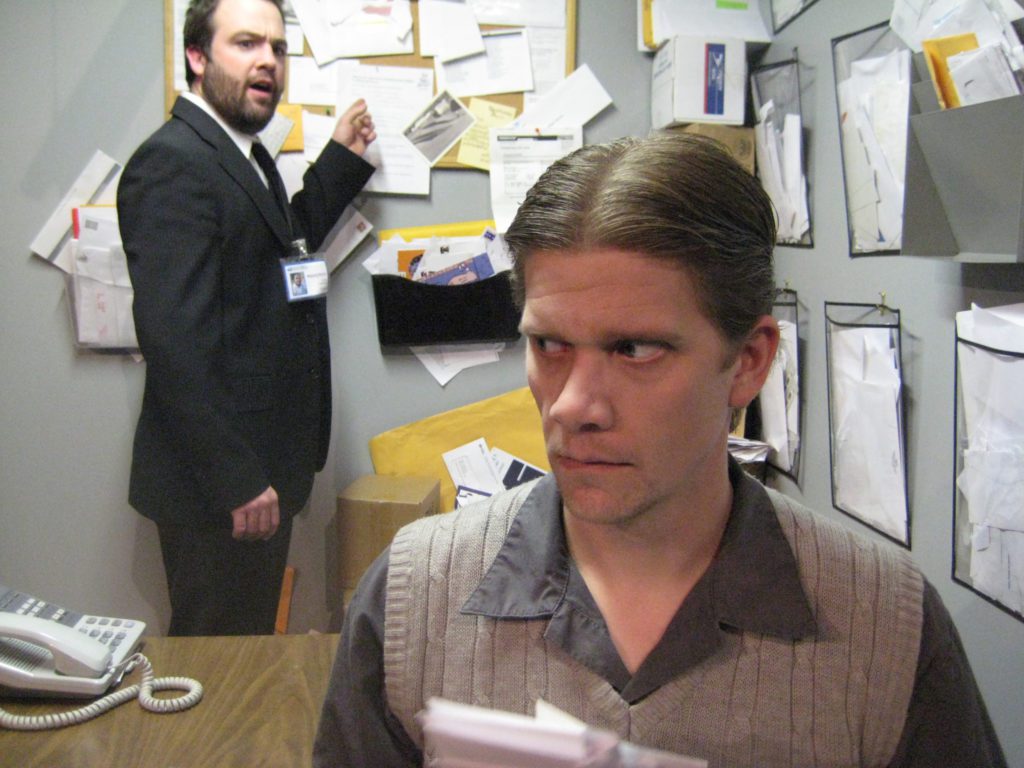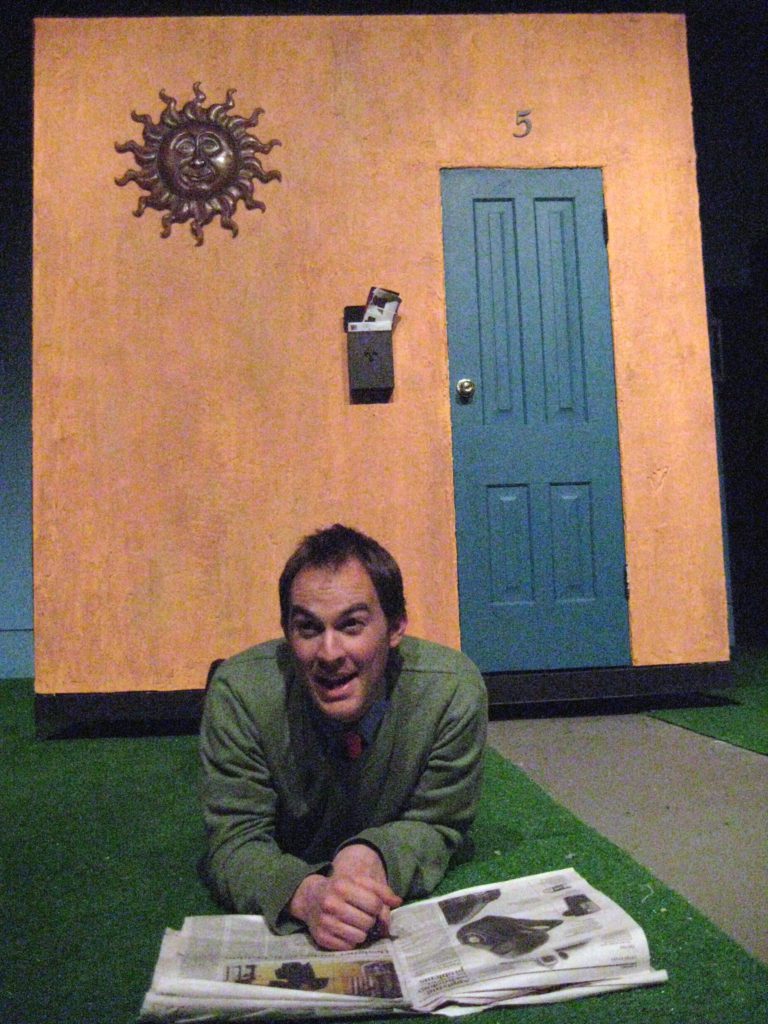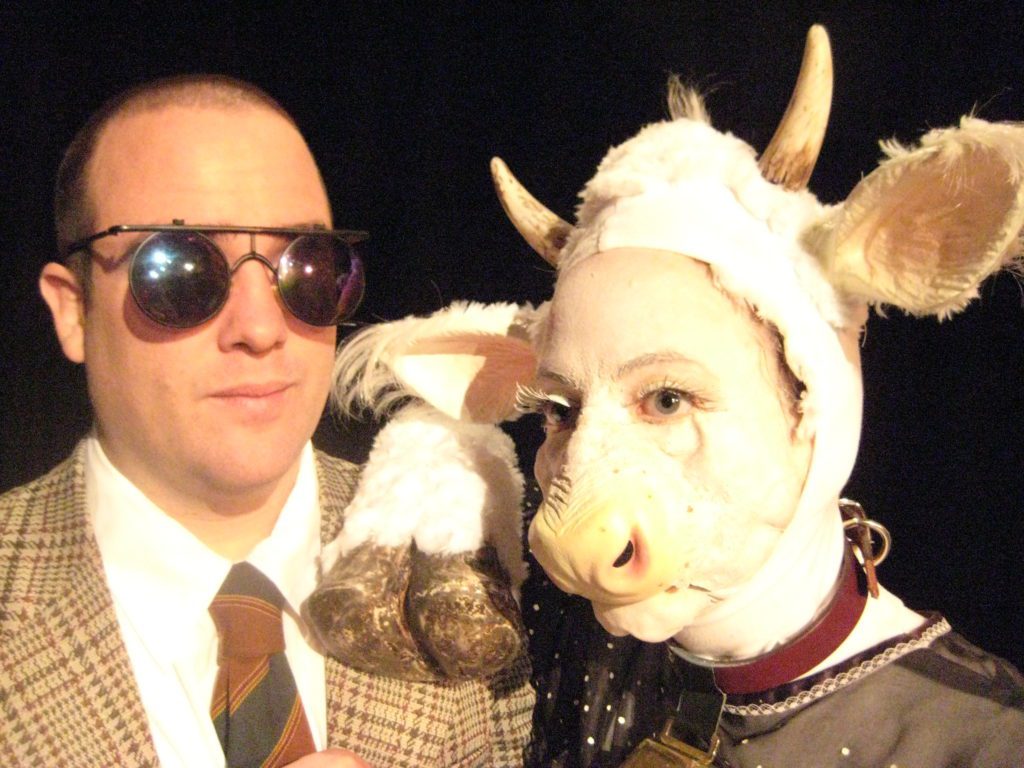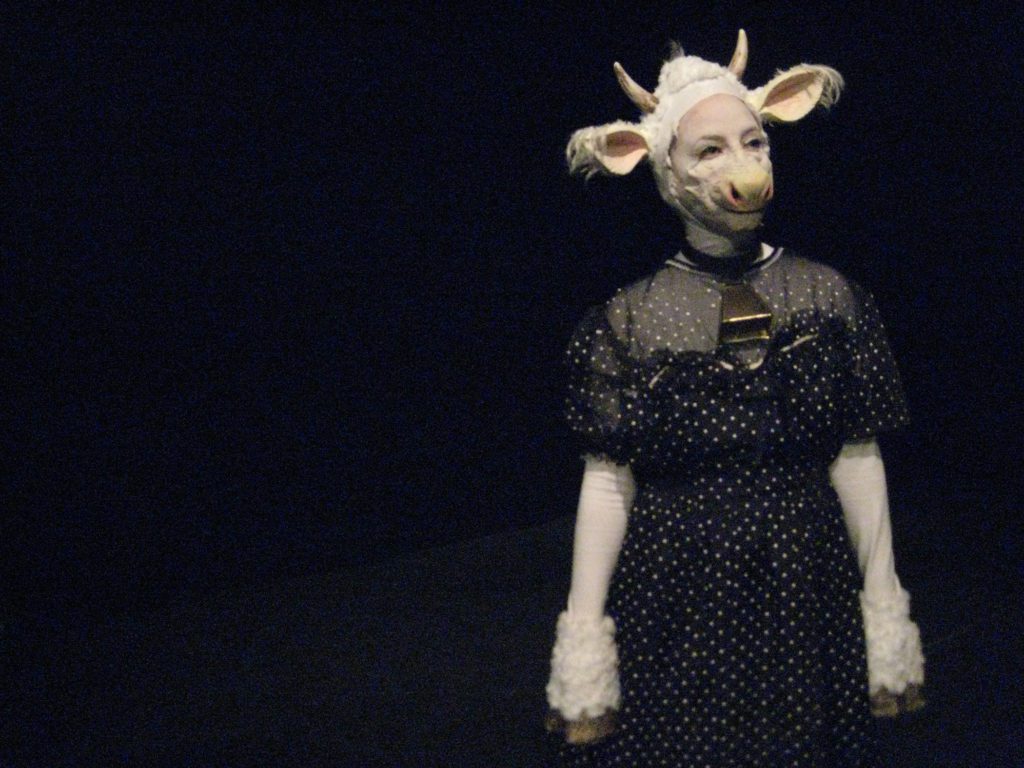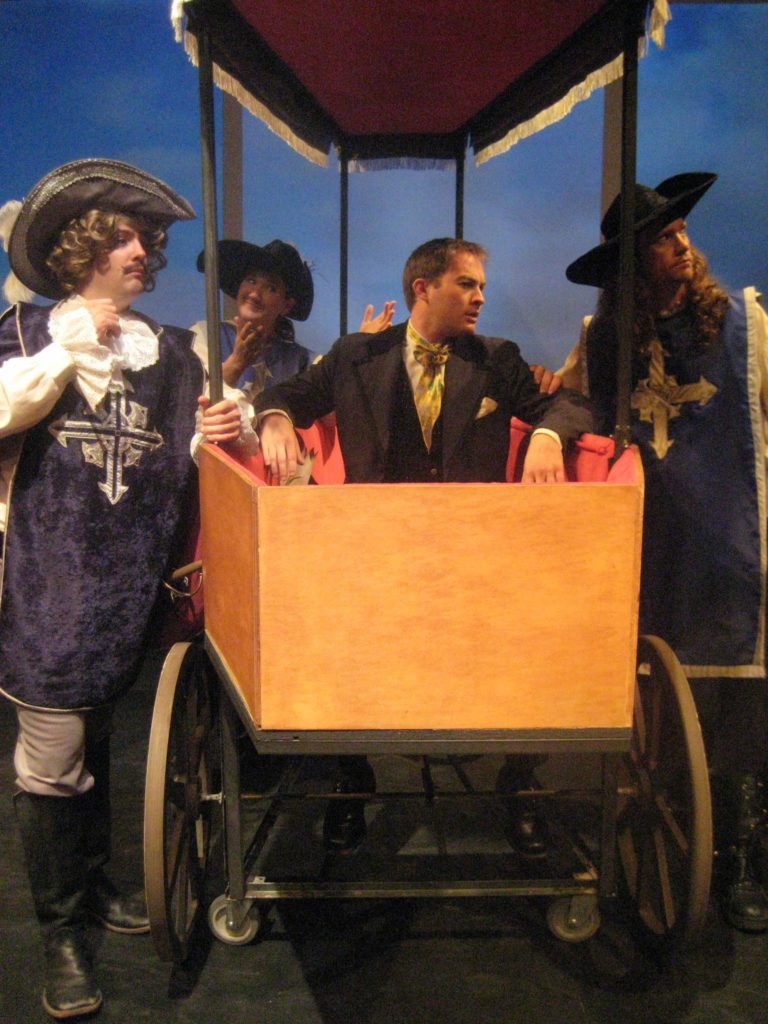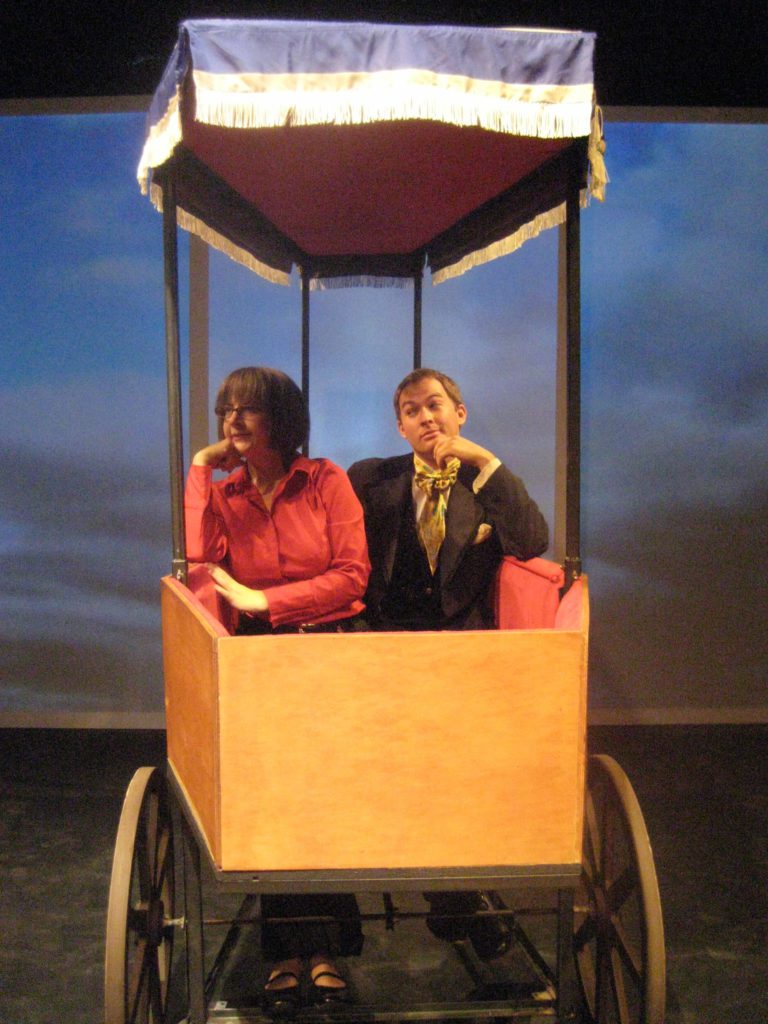You might expect, even hope, for Buntport Theater’s first full foray into musical theater to be an act of all-out comic subversion. Instead, the unusually titled “Seal. Stamp. Send. Bang.” is a surprisingly heartfelt and fun homage to the form.
Well, wait a minute. There is that song where the postal inspector tortures a naughty employee with an electric dog collar. And there’s the letter carrier who decides the “bird dirt” on her windshield is the sure sign of a coming epiphany. And there’s that, shall we say, detonative climax. (Sorry, but the last word of the title is a dead giveaway.)
Even still, yes, “S.S.S.B.” is a surprisingly heartfelt and fun homage to the form. Really.
It’s just not fully realized.
Buntport, a highly regarded ensemble that stages only original works it creates in collaboration, embraces whimsical musical conventions. But it takes the genre in its own distinct misdirection, too – one Buntport fans should relish, while hard-core musical geeks may find it just a bit out of reach.
As its quadrangular title suggests, “S.S.S.B.” is not so much an arc as a square: It’s four distinct stories tenuously connected by a postcard, making for an evening of right angles, at once exciting and discombobulating, peppered with starbursts of creative fancies.
Recalling both the whimsy of “Avenue Q” and the melancholy of Buntport’s own “Winter in Graupel Bay,” “S.S.S.B.” explores loneliness and the fragile interconnectedness between neighbors – while singing unabashedly fun synth- pop songs by Adam Stone to taped Casio accompaniment.
The horizontal set is a block of four home fronts that spin around and transform into cars, offices and even rooms inside homes!
The story plays out like a film that follows an object rather than a single character.
The tale jumps the shark when masochistic postal inspector Richard (Brian Colonna) busts Jason for his peeking too far into these letters, performing a strange torture song that’s perhaps a nod to the dentist from “Little Shop of Horrors.” We never fully recover from that abrupt change in tenor, but the journey of the postcard – depicting a man sitting alone by a lake – goes on.We first meet letter carrier Susan (Erin Rollman), who bursts into “Bird Poop Angel,” a clever nod to “Pippin”like “Corner of the Sky” show tunes. Shy Pete (Evan Weissman) drops unaddressed postcards into a big blue mailbox. But Susan, not knowing they are meant for her, delivers them to the dead-letter office. There, office drone Jason (Erik Edborg) revels in the stories told within all this misdirected correspondence.
This staging constantly straddles the line between brilliant and incongruous. That is, until Hannah Duggan sends the show into the stratosphere. In the final chapter, she plays Daphne, a shifty gal with a nasal affliction that makes her snort like a pig. Not to give away why, but when Daphne breaks into the song “My Bomb and I” while stuffed in a box and waiting to be mailed, brilliant wins out.
But at 70 minutes, “S.S.S.B.” is too short and doesn’t ever congeal into a meaningful whole. Characters are introduced and dropped. There are too many loose ends. Much is never resolved.
Buntport always drops little smart bombs into its shows, too, but here the high jinks compete with the highbrow. You can do a musical that’s about the search for meaning and connection without indulging so much in Tennyson, Kafka and Shakespeare.
This is a musical, after all, and I know one thing about musicals: Most are pretty dumb. What works so well here is the impossible perkiness; the sweet, unexpressed crushes; the dorky personal-pronoun ballads; the peppy group show tunes.
“S.S.S.B.” marks the continued evolution of a fearless, funny and fiercely intelligent ensemble. (One that, it turns out, has been hiding some surprisingly nice singing voices.)
Just stick to the cheese – and skip the spontaneous combustion.
—John Moore, March 6, 2009, Denver Post
